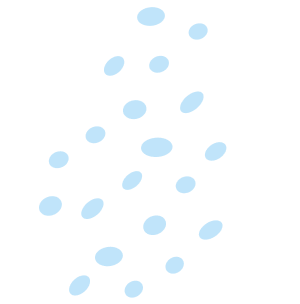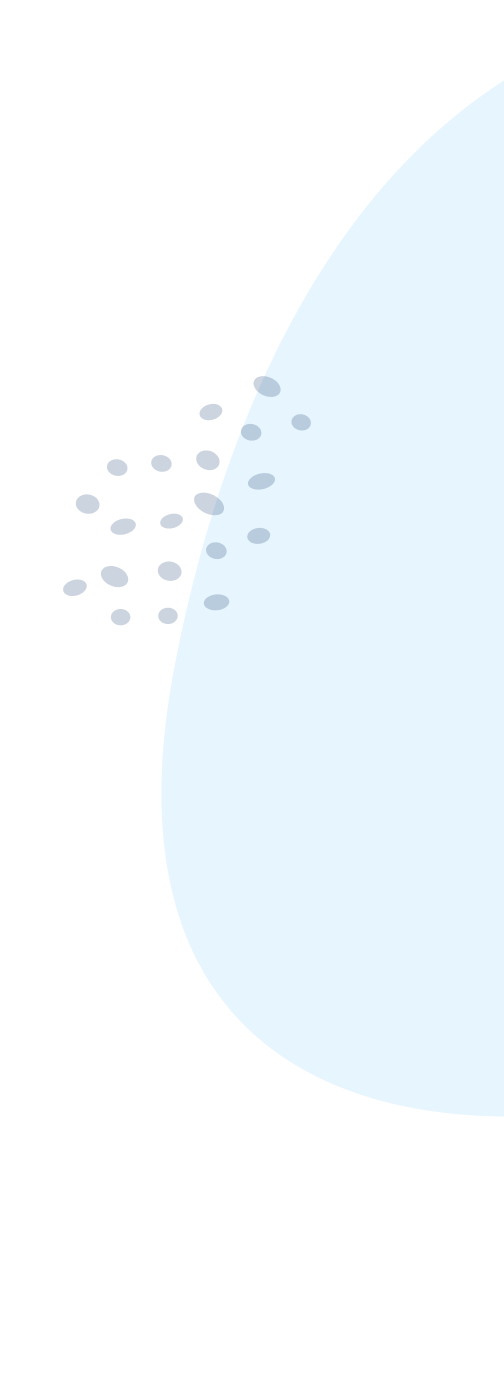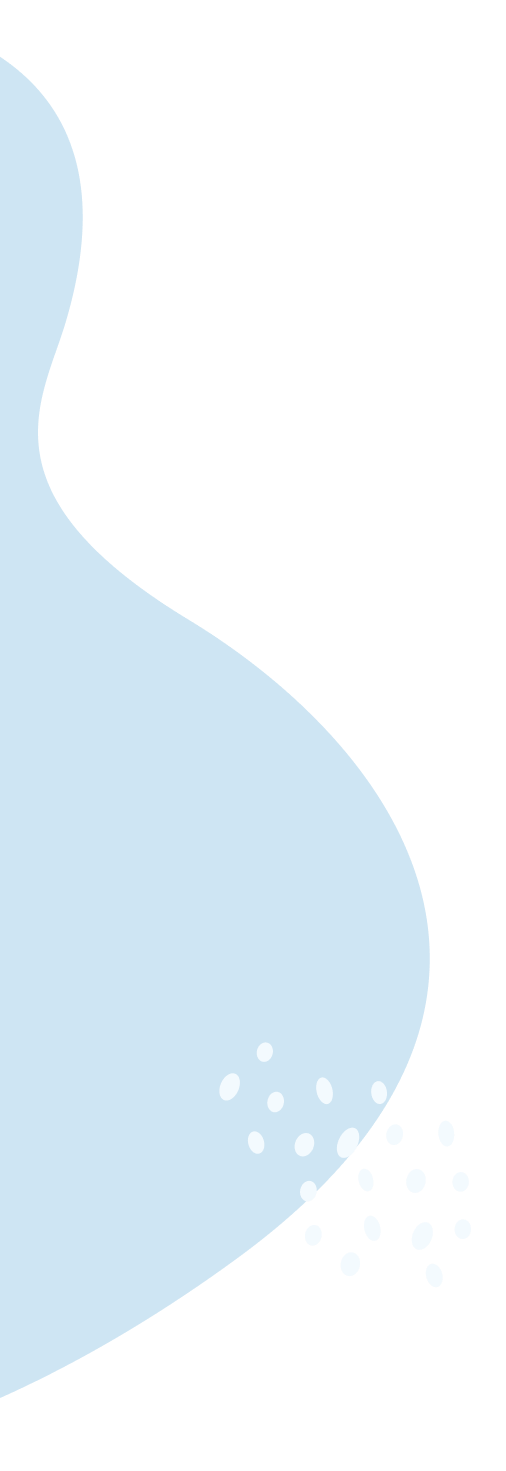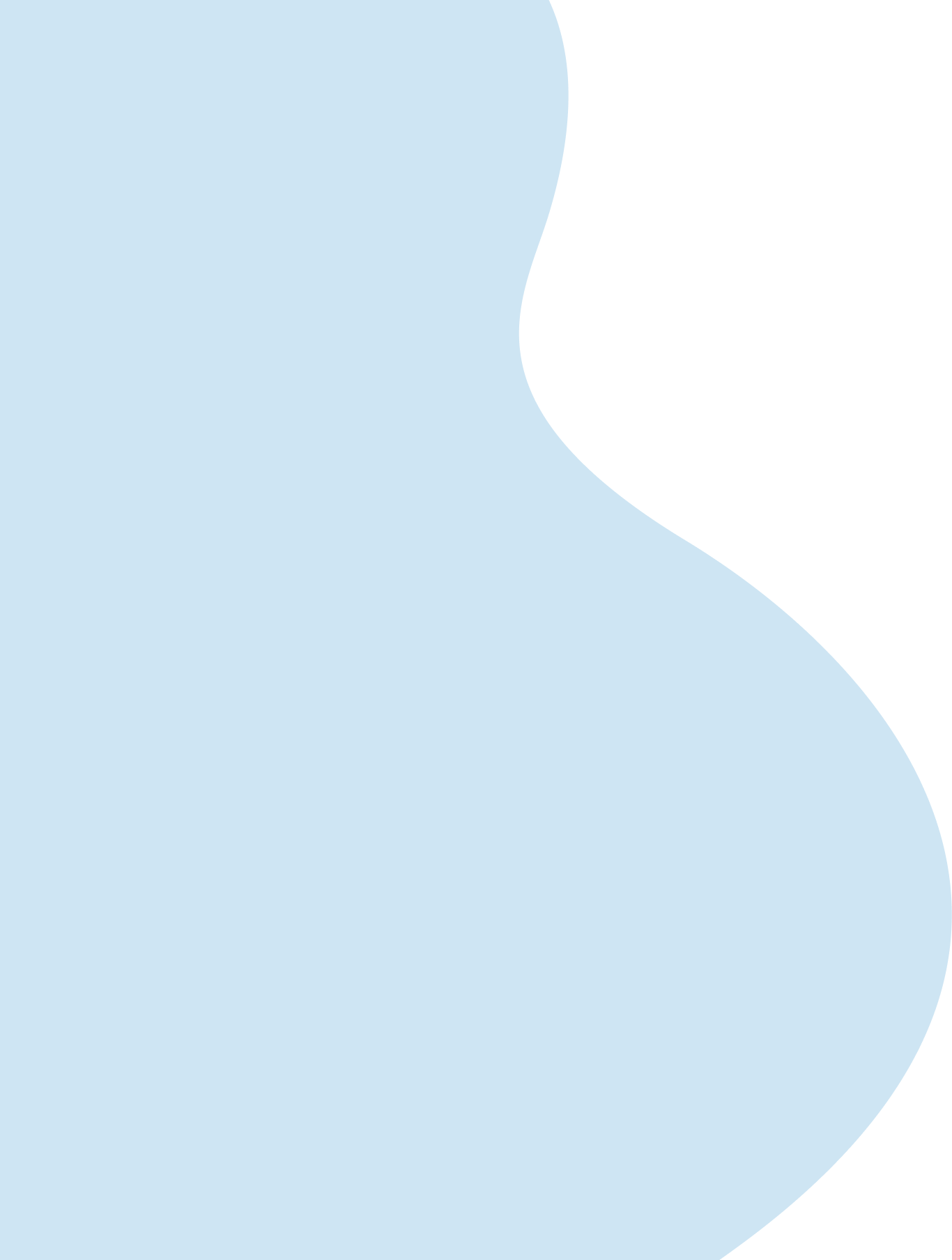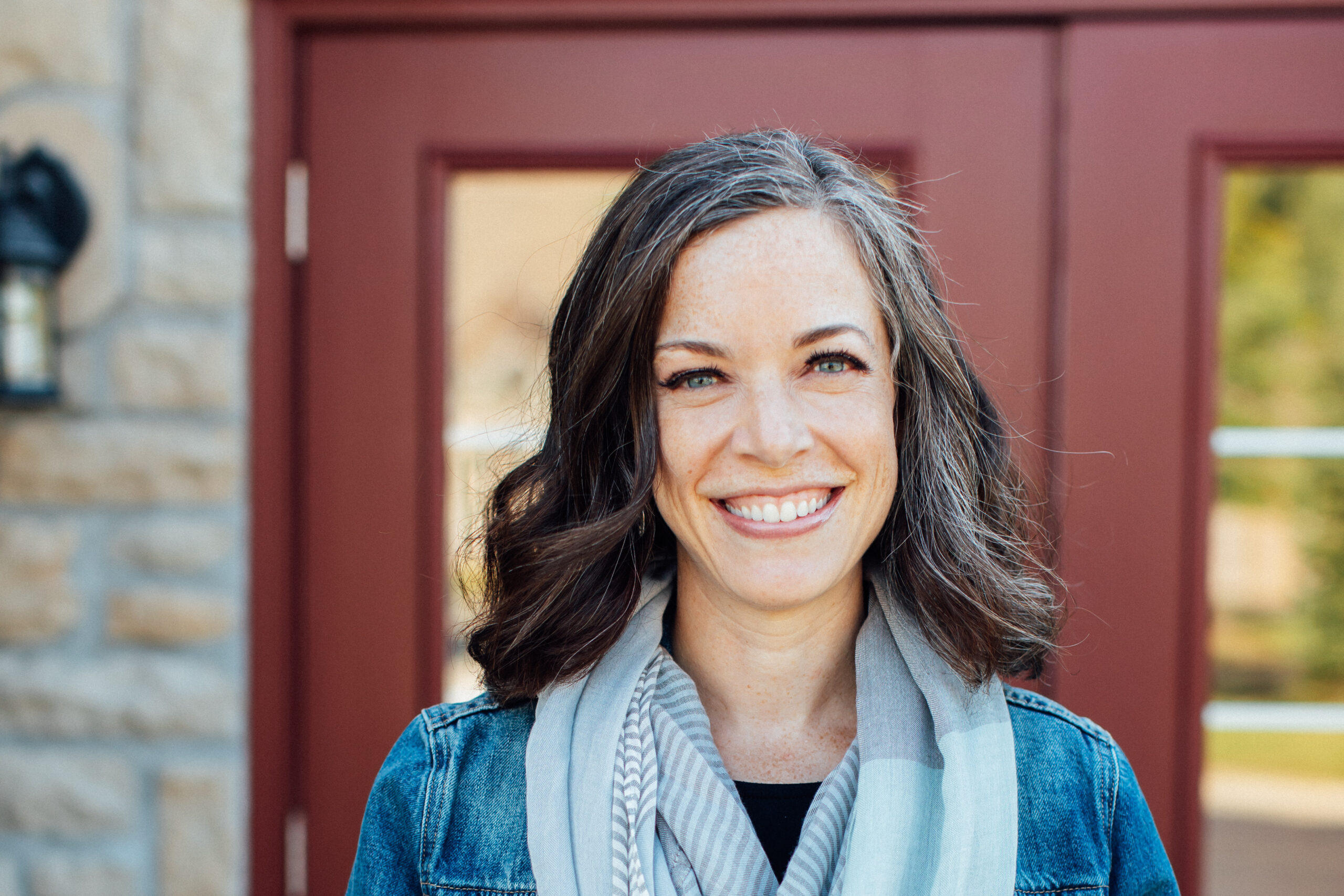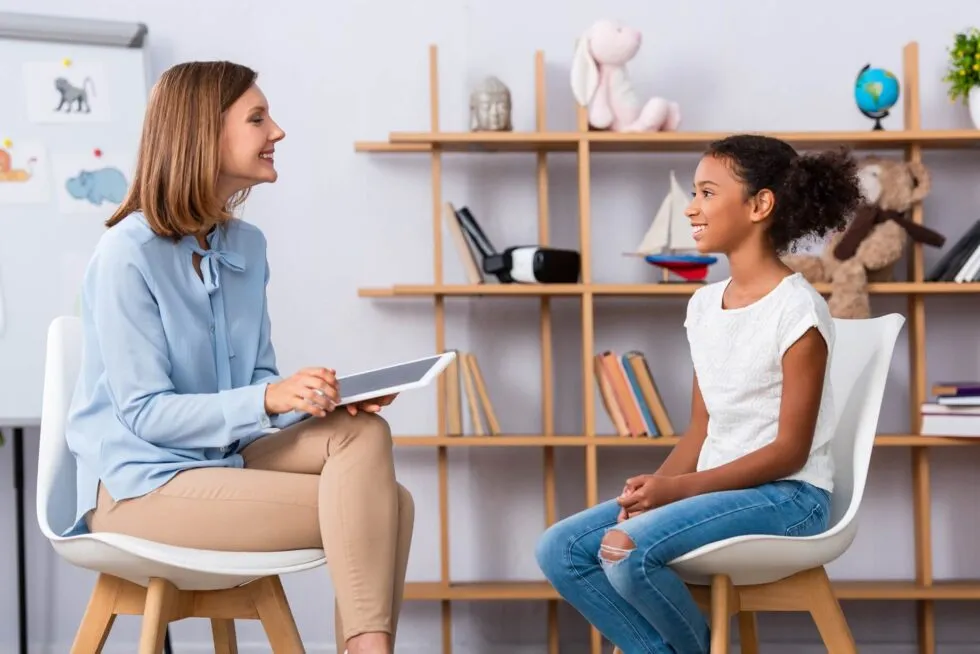Meet Lauren Carson, the founder and executive director of Black Girls Smile, a nonprofit organization that empowers the mental well-being of young black girls. We talked with Lauren to learn more about the organization and the variety of supports they offer.
Emily: I am really excited to talk with you today. Can you tell me what Black Girls Smile is?
Lauren: Black Girls Smile is a nonprofit organization 501(c)(3) status, and our mission is to promote positive mental health education, resources, and support geared towards young African American girls. We have found, and statistics show, that young girls between the ages of 13 to around 23 tend to be underrepresented and underserved for mental health initiatives and resources. We look to fill that gap and ensure that we’re providing culturally competent and gender-responsive resources and examples for education and content so that we’re meeting young women where they are and helping empower their mental health so that they can make positive decisions, that they can focus on their own mental health and mental well-being, but also so that they can enrich their communities as well. I think it’s so true when they tell you on the airplane that you need to put your mask on first. And I think that, especially when it comes to black women and girls, we are at the forefront of a lot of initiatives, whether it’s in the workplace, whether it’s at home, whether it’s in our communities, whether it’s among our friends, and for us to really show up as our best selves, we need to be mentally well. So that’s why we try to focus on the early intervention and the early prevention piece of really empowering young black women to be their most mentally-well selves.
Emily: What types of programming and support does Black Girls Smile provide to girls?
Lauren: I would say our signature program is focusing on mental health literacy. We’ve found that too often, behavioral health initiatives and organizations and even government organizations really focus on either treatment, or diagnosis, and then the recovery piece. But in many instances, young black women are not diagnosed with mental health difficulties, even though they may be experiencing mental health difficulties. So thus, they’re not getting into the pipeline of accessing resources, getting to a place of recovery. Through our mental health literacy program, we really try to educate young women on what mental health is, how it impacts various areas of your life, common warning signs and symptoms, and what’s most important for us, is how to maintain positive and healthy mental health and well-being. That’s really focusing on coping skills, self-care methods, and being able to access and know about and know when to access specific resources. So, we really try to focus on the positives of mental health. I think too often mental health kind of gets a bad rap. And a lot of negative terms are attached to mental health. When in all actuality, we all have mental health. We don’t all necessarily have a mental illness. We all at some point struggle with mental health difficulties. But really focusing on coping skills, meaning how do you deal with difficult or traumatic experiences or situations, self-care methods? How do you recharge? How do you renew? How do you ensure that you’re not necessarily running on empty day in and day out?
And then we also focus on resources. I think a lot of young people, especially young minority women aren’t really aware of the resources that are available to them or resources that they should access in crisis or non-crisis situations. We’re too often hearing that a young person doesn’t even know that their school counselor is someone that they can go to. In many instances, they don’t even know that they have a school counselor, or we hear that they just think the school counselor is focused on just academics or just helping with college applications and things like that. Whereas in all actuality, in many instances, there are resources that are available and they just need to be made more aware of the resources that are at their disposal.
Emily: That is wonderful. I would love to hear about the shift for your organization, since the COVID- 19 pandemic. I know you were doing a lot of in-person support. What has changed in terms of how you support girls?
Lauren: I have to admit, COVID has created a really unique opportunity for our organization. We had previously been operating mostly out of New York and Atlanta, we had done some programming in the DC, Maryland, Virginia areas. For about four years now, we have been receiving requests throughout the country, and even some international requests but we didn’t always have the resources to scale or to deploy resources to these communities because we didn’t necessarily have a contact or a facilitator there. And so, with the pandemic, being able to take a lot of our programming virtual has really been beneficial for us as an organization and allowed us to reach more participants. We’ve had two different options either on-demand, so recording our programming for kids whose schedules are up in the air, or live virtual programming, which is our mental health literacy programming, and also intersectionality workshops. These focus on various topics that intersect with black girls’ mental health, whether that’s focusing on coping skills, we’ve done journaling, writing your story and how that can be really cathartic, workshops on sexual health, programming on preparing for the college matriculation process, because that can be very anxiety-filled, and then we’ve also done workshops on how to use social media in appropriate ways.
And then, lastly, one of the biggest programs that’s kind of had a shift during this time is our therapy scholarship program. Previously, when we were referring young women to resources, we maintained a really comprehensive, culturally competent and gender-responsive provider list. These are providers that are standing for the community and are identified as people who will stand for young black women in crisis and non-crisis situations. We decided to go a step further during this time, given the unprecedented needs when it comes to mental health and the disproportionate levels of how COVID, economically and health-wise, is impacting the African American community. We now cover 10 sessions for young black women to work with a licensed mental health professional and we’ve received really good reception from this program. We’re just constantly looking for new ways to kind of expand our programming, especially in this virtual environment. I think it’s created more opportunities for us to try things, for there not to be as heavy of a lift of needing to do things in person. So, we are extending all of our programming out virtually for the remainder of the year. And then we’ll be working with our school partners or community centers to figure out what the next steps look like for them. I think everyone’s still trying to figure out what the world’s going to look like after all of this. We’re just trying to stay flexible and agile, to see what happens.
Emily: I think flexibility is key right now. How many girls has Black Girls Smile reached with your programming?
Lauren: Last year, we were actually able to triple our reach and we were able to reach close to 5000 girls through our programming. That’s our mental health literacy programming, either accessing that on-demand or through our live workshops which we do our intersectionality workshops. We have several partnerships, several conferences that we spoke at, and then also our therapy scholarship program. We’re looking to continue that trajectory. We had about triple-digit growth kind of in all areas last year, and we’re looking to continue that growth.
I think as the focus really shifts to focusing specifically on mental health, but also within minority communities. I think that we’re going to continue, not just us, but I think as a whole, to see growth for initiatives and programming and resources are being allocated to specific groups. The reason I indicate that is, I don’t think that necessarily the African American community needs more resources than other demographics, or that it should be taken away from anyone. We all have mental health and mental health difficulties do not discriminate against racial groups or ethnicities. But you do find that there are specific groups that have unique stress factors that have risk factors, that make them more susceptible to experiencing mental health difficulties. The more that we can attack those stress factors, those risk factors, and really work to bolster the protective factors, that’s going to help us get to an even playing field, just across the board.
Emily: What is your favorite part of your job?
Lauren: My favorite part is when we get emails, or phone calls or text messages, or DMS, from young women who felt like no one cared or who felt like therapy wasn’t for them or mental health was something that they’ve just felt on the outside of. To hear that “a-ha” moment and to really be able to help facilitate that, I think is what’s most rewarding for me. When we get an email from a young woman that says, “I‘ve been struggling with anxiety and depression my whole life, and this is what helps. Working with Black Girls Smile helped me.” To know that this is something that radiates and that really radiates throughout communities is amazing. We hear from young women who then take the things that they’ve learned back to their families, to their friends, then we get you referrals. A lot of the work that we do is word of mouth is referrals. And every time we receive those that’s what’s most rewarding.
Emily: What is 1 thing you want everyone to know about Black Girls Smile?
Lauren: I think we all deserve to smile. I think too often in society, especially for black women and girls, we’ve gotten really content with just making it and just getting by. That’s not what we’re here for. We’re here to enjoy life. We’re here to give to others. We’re here to show up as our best selves. And I think that smiling is probably the most genuine and authentic way of depicting that and I think it’s something we all deserve to do. We all absolutely deserve to smile. And I think that that’s what we work to do at Black Girls Smile is make sure that we’re creating a little space where we’re working with a demographic that too often doesn’t get opportunities to smile or have the resources to ensure that they’re mentally healthy and they’re mentally well. I think at the end of the day that we really all deserve to lead a mentally healthy life and the most genuine way of showing that is through smiling.



